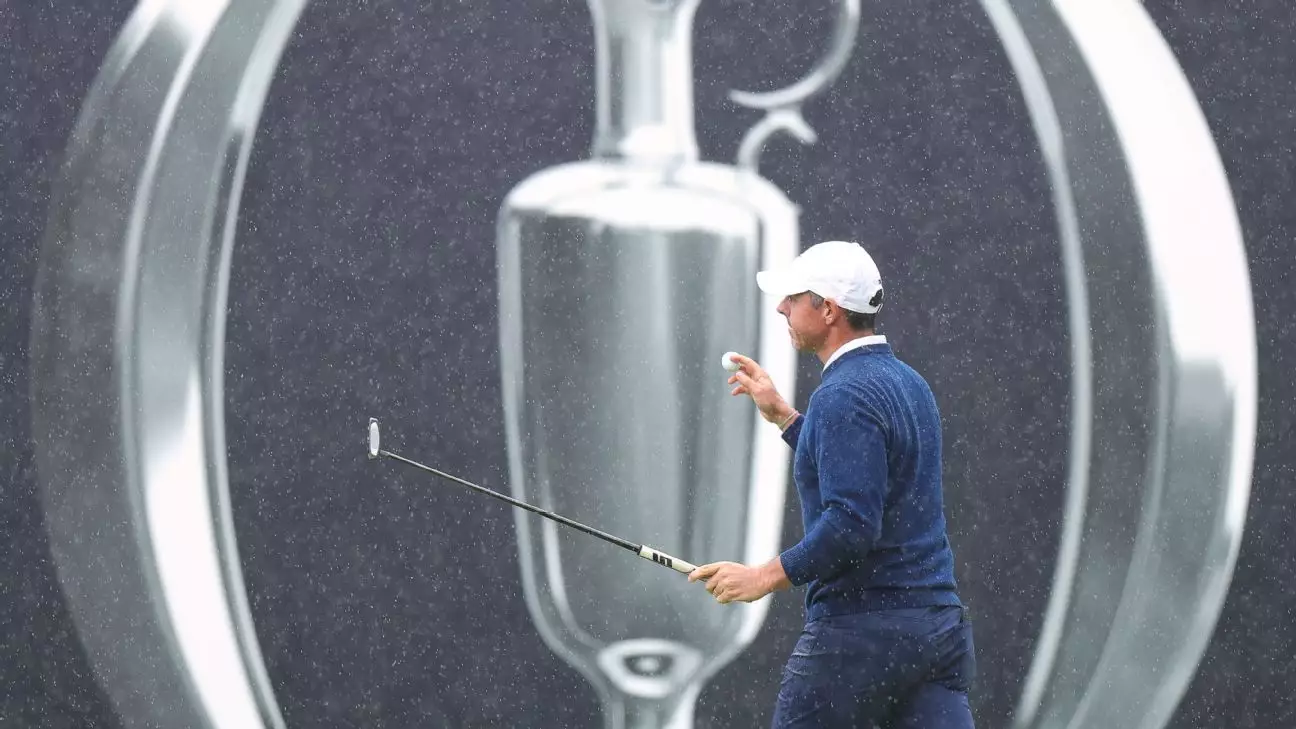Rory McIlroy’s journey at Royal Portrush exemplifies the relentless pursuit of greatness amid the shadows of past setbacks. Six years after a disappointing exit from the 2019 Open Championship, McIlroy has demonstrated profound resilience by securing a spot in the weekend competition for the first time since that turbulent chapter. This shift in fortune is more than just a score; it symbolizes a mental recalibration that champions often need to stay relevant in a sport as punishing as golf. McIlroy’s ability to rebound from failure reveals a core strength that transcends mere athleticism—it’s about embracing vulnerability and transforming it into fuel for future victories.
The narrative of sports is littered with stories of athletes who falter and rise anew, but few embody this spirit with such authenticity as McIlroy. His acknowledgment of past disappointments, coupled with a candid reflection on his growth, underscores a broader message: success is rooted in perseverance, not innate talent alone. In an era dominated by fleeting fame and instant gratification, McIlroy’s patience highlights an important ideological stance—commendable progress is rarely linear, and true champions are those who remain committed through adversity.
Community Support and the Power of National Pride
The energy of the Northern Irish crowd at Royal Portrush manifests as a collective heartbeat that pushes McIlroy towards excellence. Their chants, cheers, and unwavering support serve as a reminder that sports, especially golf in a national context, are deeply intertwined with identity and pride. While some critics argue that such fervor can amplify pressure on athletes, McIlroy’s response suggests that passionate audiences can be catalysts for exceptional performances, not obstacles.
This relationship between athlete and community underscores a fundamental belief in the social impact of sports—fostering unity, inspiring hope, and reaffirming local pride. McIlroy’s acknowledgment of the crowd’s influence signifies an understanding that sporting success isn’t solely individual achievement; it is also a shared experience that reflects collective aspirations. His gratitude points to a broader liberal ideal: communities flourish when they rally around their heroes, not to elevate them above others but to foster a sense of belonging and shared purpose.
Reflections on Performance and Self-Improvement
Despite mixed results in his first two rounds, McIlroy’s performance reveals a calculated effort to rebuild confidence. His improvement in ball-striking accuracy and approach play indicates that he is actively addressing vulnerabilities that previously hampered his game. The mental fortitude required to turn around a struggling round and finish strongly is a testament to his professionalism.
Moreover, McIlroy’s comments about needing everything to “fire” over the weekend reflect a realistic and healthy understanding of excellence. Success in golf, as in many aspects of life, hinges on consistency and the ability to perform under pressure. His focus on fine-tuning each facet of his game — from driving to putting — embodies a pragmatic approach rooted in self-awareness and continuous improvement. This mindset resonates with the center-wing liberal belief in fairness and the importance of giving oneself the opportunity to succeed through effort and resilience.
Elevation Through Personal Growth and Societal Reflection
McIlroy’s narrative is not merely about a golf tournament; it echoes wider societal themes. Overcoming setbacks, feeling supported by one’s community, and striving towards personal redemption are universal pursuits. His journey underscores the importance of mental health and self-belief in the face of adversity, emphasizing that progress often involves battling internal doubts as fiercely as external obstacles.
In a broader political context, his resilience mirrors the liberal ethos of inclusivity and empowerment—the idea that everyone deserves respect and support as they work through their struggles. McIlroy’s openness about his journey encourages a cultural shift towards embracing imperfections and fostering environments where effort and perseverance are celebrated. His story advocates for a society that recognizes human vulnerability and actively works to uplift those striving for excellence amid challenges.
The Royal Portrush challenge has long been a crucible for McIlroy’s growth as both an athlete and a person. His evolving mindset and unwavering resolve suggest that the true victory lies not just in scoring well, but in reclaiming confidence and embracing the communal spirit that turns sport into a meaningful symbol of resilience.


Leave a Reply